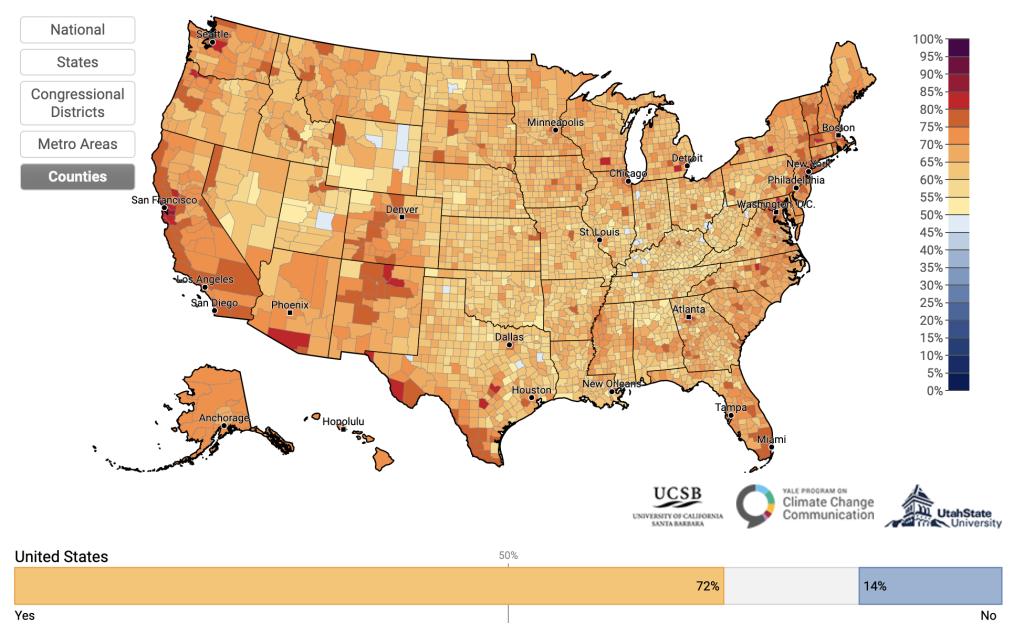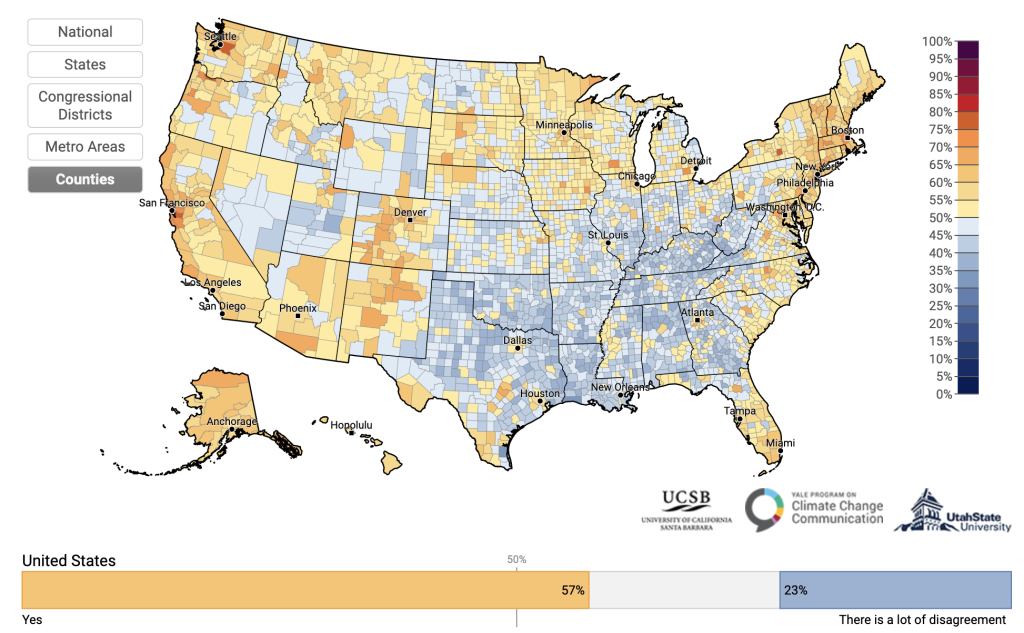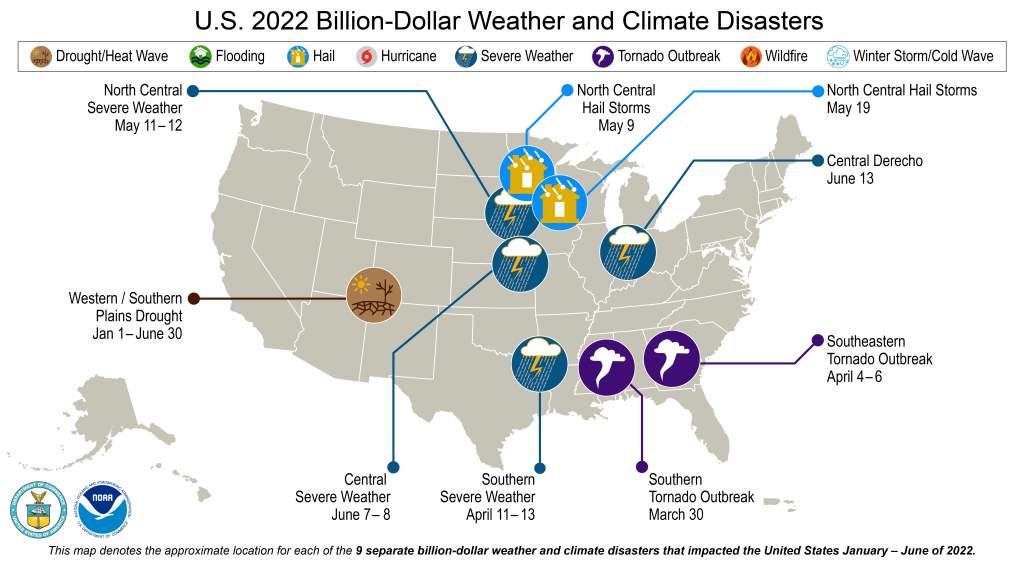Schools in Connecticut were already teaching most students about human caused climate change, but Connecticut House Bill 5285 will now require it in K-12.
The bill to require it was passed back in April but it was not included in the budget, meaning that the schools who weren’t already teaching it, mostly those with lower income and non-white students, will have the ability to really implement the new curriculum.
The goal is to bring everything in line with the Next Generation Science Standards, a set of science standards developed by many states along with the American Association for the Advancement of Science and Achieve.
While many states are making strides with better climate legislation and education, climate bills are often a difficult prospect on a federal level, partially because it is easier to block change than to create it in American democracy.
But part of the problem seems to be that climate change deniers have done an excellent job convincing people that the science is up for debate. The Yale Climate Opinion Survey from 2021 shows that while a majority of people in almost every county believe that climate change is happening, there are a lot of counties where a most people believe that the scientists are in disagreement about whether it is happening.


Confusion like this allows climate change deniers, and those who continue to profit from climate change denial, to make new legislation seem like a bad idea. But the universal climate education in Connecticut is aiming to make sure that all students see a clearer truth on climate education. As Connecticut state Rep Christine Palm said when she voted yes back in April, “A lot of poorer communities weren’t being taught this, and that’s really a travesty, because people of color and people in cities are more affected by climate change”.
'A lot of poorer communities weren’t being taught this, and that’s really a travesty, because people of color and people in cities are more affected by climate change,' continued Palm. 'For me, it was a matter of environmental justice.'
— NowThis (@nowthisnews) May 19, 2022
Connecticut is not the first state to require climate education like this, but the process is following a politically segregated trend, like so many issues in education. On average, left-leaning states are much more likely to have laws on the books or clear expectations on how climate change needs to be taught. But there are some interesting exceptions. In a report released back in 2020 from the National Center for Science Education and the Texas Freedom Network Education Fund, shows what an impressive job Alaska, North Dakota, and Wyoming, traditionally red states, and Colorado, traditionally a swing state, are all doing. It seems likely that the existential issues around snow and glacier melt are spurring some realism in these legislatures.
The same can’t be said for Florida, Alabama, or Texas, all of which have experienced billion dollar climate problems in 2022 alone.

For now, laws like the one in Connecticut’s are a great step in the right direction and could be an example for other states to follow.
More Stories
Tutoring as a part of teaching / Everything comes back to money
One of the difficult things with education is our reliance on a “one size fits all” model. We have for...
Justin Reich on Learning Loss, Subtraction in Action, and a future with much more disrupted schooling
Justin Reich is an education and technology researcher and the director of MIT’s Teaching Systems Lab. He hosts a podcast...
Public K-12 Enrollment is falling and that is dangerous and exciting
A surprising result of COVID and the resulting school closures is that many parents, after struggling to figure out how...
Esports could help re-diversify a shrunken curriculum
Esports and schools feel like a pretty strange fit. Regular sports have always gone with schools, but adding esports still...
Review of “How to Raise Successful People” by Esther Wojcicki
This is an interesting book with the perspective of a unique person that ultimately falters because of the blind spots...
SIGGRAPH at 50
SIGGRAPH , the premier conference on computer graphics education, held its 50th event last week in Los Angeles. Back in...
